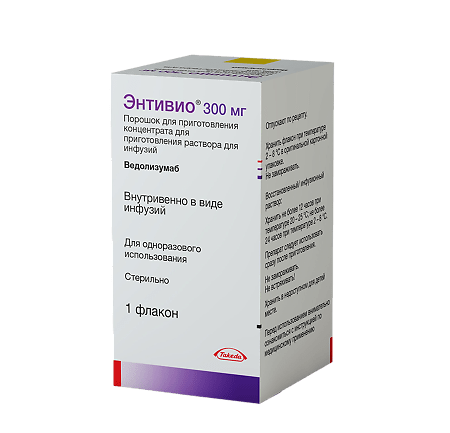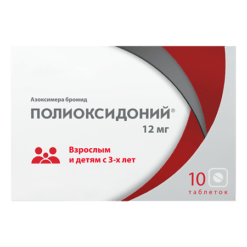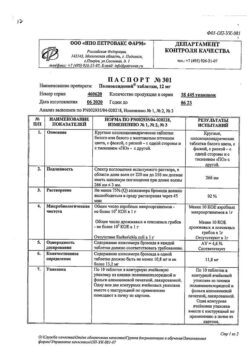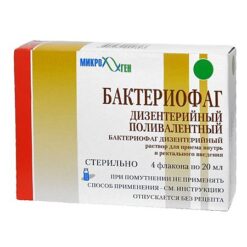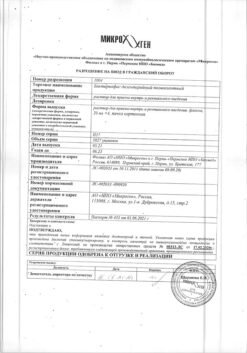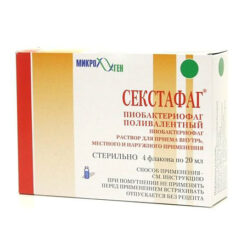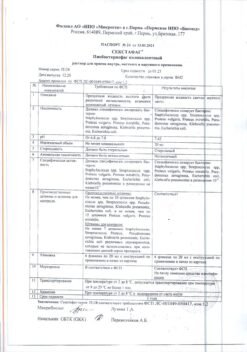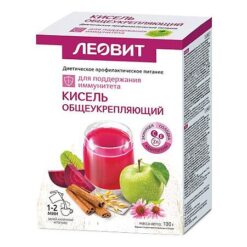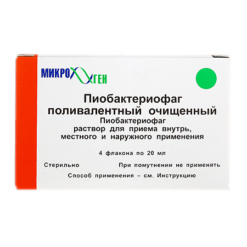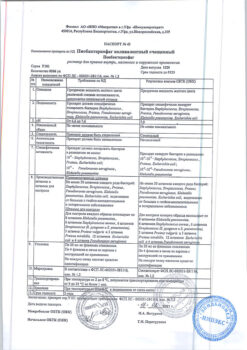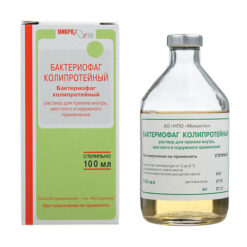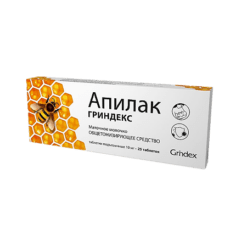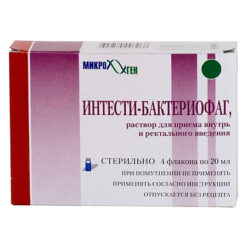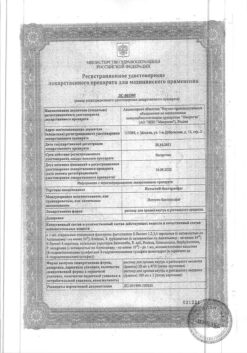No products in the cart.
Entivio 300 mg
€1.00
Out of stock
(E-mail when Stock is available)
Description
Vedolizumab is an immunosuppressive biological drug with selective intestinal effects. It is a humanized IgG1 monoclonal antibody that binds specifically to α4β7-integrin and selectively blocks the interaction of α4β7-integrin with mucosal cell adhesion molecules adressin-1 (MAdCAM-1) but not with vascular cell adhesion molecules-1 (VCAM-1). MAdCAM-1 is predominantly expressed, mainly on intestinal endothelial cells, and plays a leading role in the migration of T-helper lymphocytes that cause the chronic inflammatory process characteristic of ulcerative colitis and Crohn’s disease, which affects GI tissues.
Disruption of this molecular interaction prevents transmigration of intestinal T lymphocytes through the vascular endothelium into parenchymal tissue in nonhuman primates and induces a reversible threefold increase in these cells in peripheral blood. The mouse precursor vedolizumab reduced GI inflammation in colitis in Oedipus tamarins, an experimental model of ulcerative colitis. Vedolizumab does not bind to α4β1– and αEβ7-integrins, nor does it suppress their function.
In healthy volunteers, patients with ulcerative colitis or patients with Crohn’s disease, vedolizumab did not cause an increase in neutrophils, basophils, eosinophils, B cells and cytotoxic T cells, total memory helper T cells, monocytes or natural killer cells in peripheral blood in the absence of leukocytosis.
Vedolizumab had no effect on immune control or CNS inflammation in experimental autoimmune encephalomyelitis in nonhuman primates serving as a model of multiple sclerosis, nor on immune responses during antigenic skin and muscle stimulation. In contrast, vedolizumab suppressed the immune response to gastrointestinal antigen stimulation in healthy volunteers.
In clinical trials, patients were administered vedolizumab at doses ranging from 2 to 10 mg/kg and observed more than 95% saturation of α4β7 receptors on subtypes of circulating lymphocytes involved in immune control in the gut.
Vedolizumab had no effect on the directed migration of CD4+– and CD8+– lymphocytes in the CNS, as evidenced by the lack of change in CD4+/CD8+ in the cerebrospinal fluid of healthy volunteers before and after vedolizumab administration. These data are consistent with studies in non-human primates, which indicate no effect on CNS immune control.
Preclinical safety data
Preclinical data showed no particular hazards to humans from traditional pharmacological safety studies, multiple-dose toxicity studies, and studies of toxic effects on reproduction and fetal development.
There have been no long-term animal studies to investigate the carcinogenic potential of vedolizumab due to the fact that models with pharmacological sensitivity to monoclonal antibodies do not exist. No evidence of cellular hyperplasia or systemic immunomodulation, which could potentially be associated with oncogenesis, was observed in species with pharmacological sensitivity (macaque crab-eaters) in 13- and 26-week toxicology studies. Moreover, there was no evidence of effects of vedolizumab on the proliferation rate or cytotoxicity of human tumor cell lines expressing α4β7 integrin in vitro.
Special studies on the effects of vedolizumab on reproductive function in animals have not been conducted. There are insufficient data on the study of the toxic effects of multiple doses in crab-eating macaques to draw any definite conclusions about the effects of the drug on the reproductive organs of males. Given the fact that vedolizumab does not bind to reproductive tissue in monkeys and humans and the intact reproductive function observed in male mice with β7-integrin turned off, it can be assumed that vedolizumab has no adverse effects on reproductive function in males. When vedolizumab was administered to pregnant female crabapple macaques for most of the gestation period, no evidence of teratogenic effects on pre- and postnatal development was observed in calves up to 6 months of age. Low levels (< 300 μg/L) of vedolizumab were detected on day 28 postpartum in milk in 3 of 11 female crabapple macaques receiving vedolizumab at doses of 100 mg/kg every 2 weeks, but were not detected in milk in any of the females receiving doses of 10 mg/kg. It has not been determined at this time whether vedolizumab penetrates into breast milk in females.
Pharmacokinetics
Indications
Indications
Ulcerative colitis
Patients with moderate to severe active ulcerative colitis:
Cron’s disease
Patients with moderate to severe active Crohn’s disease:
Active ingredient
Active ingredient
Composition
Composition
How to take, the dosage
How to take, the dosage
Intravenously, as an infusion.
The treatment regimen is the same for ulcerative colitis and Crohn’s disease.
The drug Entivio® 300 mg is given for 30 minutes, then at the same dose after 2 weeks and 6 weeks after the first injection and then every 8 weeks thereafter.
Long course of treatment
In ulcerative colitis, if there is no therapeutic effect by week 14 of administration, consideration should be given as to whether to continue treatment.
In Crohn’s disease, if there is no clinical response to therapy, therapeutic effect can be achieved with Entivio® 300 mg at week 10.
Patients who show a clinical response to treatment continue to be treated after Week 14 at 8 week intervals. If there is no sign of clinical response by Week 14 in patients with Crohn’s disease, treatment should be discontinued.
In patients with ulcerative colitis and Crohn’s disease who have reduced clinical response to treatment, therapeutic effect can be achieved by administration of Entivio® 300 mg every 4th week. The appropriateness of continuing treatment in patients without signs of improvement after dose adjustment should be carefully evaluated.
Patients who show clinical response may have the dose reduced and/or corticosteroids discontinued according to treatment standards.
Repeat use
If maintenance therapy is interrupted and it becomes necessary to resume treatment, the dosing regimen should be used at 4 week intervals. In clinical studies, repeat treatment with vedolizumab restored efficacy without a significant increase in the incidence of adverse events or infusion reactions (IRs).
Special patient groups
The safety and effectiveness of Entivio® in children younger than 18 years has not been established. No data are available.
In elderly patients 65 years of age and older, there is no need to adjust the dose of the drug.
The results of a population pharmacokinetic analysis showed that age has no effect on the clearance of vedolizumab.
In a population of patients with impaired renal and hepatic function, the drug has not been studied and there are no dose recommendations.
Interaction
Interaction
There have been no studies of coadministration of vedolizumab with other drugs, including biological immunosuppressants.
Hence, it is not recommended to mix prepared vedolizumab infusion solution with other drugs or to introduce them into the infusion system.
There are no data from clinical trials of vedolizumab in patients previously treated with natalizumab or rituximab. Caution should be exercised when considering the use of Entivio® in these patients.
Patients previously receiving natalizumab should generally wait at least 12 weeks before starting treatment with Entivio® unless the patient’s clinical condition indicates otherwise.
Special Instructions
Special Instructions
Before treatment with Entivio®, it is recommended that all patients be immunized according to current immunization recommendations. The drug should be used under the close supervision of qualified medical personnel capable of controlling hypersensitivity reactions, including anaphylactic reactions. Emergency supplies should be available during the infusion. Patients must be closely monitored during and after the infusion for 2 h for the first 2 infusions and approximately 1 h for subsequent infusions.
IRE. Clinical trial results include reports of IR and hypersensitivity reactions, mostly mild to moderate in severity.
In case of severe IR, anaphylactic reaction or other severe reactions, Entivio® should be stopped immediately and appropriate therapeutic measures taken to manage the reaction (e.g., with adrenaline and antihistamines).
If mild to moderate IR develops, reduce the infusion rate or interrupt the procedure and initiate appropriate treatment (e.g., with adrenaline and antihistamines).
After AR has ceased, the infusion is continued. Consideration should be given to premedication (e.g., with antihistamines, hydrocortisone, and/or paracetamol) before the next infusion in patients with a history of mild or moderate IR on vedolizumab to minimize possible risk.
Infectious diseases. Vedolizumab is an intestinal-selective integrin antagonist with no established systemic immunosuppressive activity. There is a potential increased risk of developing opportunistic infections or infections for which the gut is a protective barrier. Treatment with Entivio® should not be administered to patients with active severe infections until the infections have been brought under control. Consideration should also be given to discontinuing treatment in patients who develop severe infections during a long-term course of treatment with Entivio®.
Caution should be exercised when prescribing Entivio® to patients with controlled severe chronic infections or a history of recurrent severe infections. Patients should be monitored closely for infections before, during and after completion of treatment.
Because Entivio® is contraindicated in patients with active tuberculosis, patients should be screened for tuberculosis in accordance with established guidelines before starting treatment. In case of detection of latent tuberculosis before prescription of Entivio® it is obligatory to treat tuberculosis in accordance with local recommendations. In case of detection of tuberculosis in patients already undergoing treatment the administration of Entivio® is stopped until the tuberculosis infection is cured.
PML. The use of some integrin antagonists and some systemic immunosuppressive drugs are associated with PML, an opportunistic infection caused by John Cunningham virus (JC). PML syndrome is a rare CNS demyelinating disease resulting from reactivation of latent JC virus, often ending fatally. By binding to α4β7-integrin expressed on gut-migrating lymphocytes, vedolizumab has an immunosuppressive effect on the GI tract. The development of PML usually occurs in patients with a compromised immune system.
There are no reported cases of PML in clinical trials of vedolizumab, but health care providers should monitor patients receiving vedolizumab for new or worsening existing neurologic signs and symptoms and consider referring the patient to a neurologist. If PML is suspected, treatment with vedolizumab should be stopped, and if the diagnosis is confirmed, treatment with vedolizumab should be discontinued entirely.
The typical signs and symptoms associated with PML are varied, progress over days to weeks, and include hemiparesis, aphasia, behavioral and personality changes, retrochiasmal visual deficits, and seizures. Progression of impairment usually results in death or severe disability within weeks or months.
Malignant neoplasms. Patients with ulcerative colitis and Crohn’s disease have an increased risk of developing malignancies.
Live and oral vaccines. Before starting treatment with Entivio®, it is recommended that all patients be vaccinated according to current immunization recommendations. The administration of live and non-live vaccines simultaneously with vedolizumab is allowed only if the benefits of use significantly outweigh the risks.
In placebo-controlled studies involving healthy volunteers, a single dose of vedolizumab 750 mg did not result in a decrease in the protective immune response to hepatitis B virus in individuals vaccinated with three doses of recombinant hepatitis B virus surface antigen in m/m. However, patients who received vedolizumab after oral administration of a 2-fold dose of nonviable cholera vaccine were characterized by reduced seroconversion levels and antibody titers to the cholera pathogen compared with patients who received placebo.
The effect on other oral and nasal vaccines is unknown.
The induction of remission in Crohn’s disease. In some patients, induction of remission in Crohn’s disease can take up to 14 weeks. The reasons for this phenomenon are not yet fully understood and may be related to the mechanism of action of the drug. This should be considered, especially in patients with severe active disease at baseline, when TNFα inhibitors have not yet been treated.
Analyses of a research subgroup conducted as part of a clinical trial in Crohn’s disease showed that prescribing vedolizumab to patients without concomitant corticosteroid treatment may be less effective in achieving remission in Crohn’s disease compared to patients already receiving concomitant corticosteroid therapy (regardless of concomitant immunomodulator use).
Impact on driving and operating machinery
Cautiousness should be observed when driving vehicles and operating machinery requiring increased attention and reaction time, because the drug caused dizziness in a small number of patients.
Contraindications
Contraindications
Side effects
Side effects
Safety Profile
Vedolizumab was studied in 3 placebo-controlled clinical trials involving patients with ulcerative colitis (I) or Crohn’s disease (II and III). The two controlled trials (I and II) included 1,434 patients who received vedolizumab at a dose of 300 mg at weeks 0 and 2 and then every 8th or every 4th week for up to 52 weeks, and 297 patients who were given placebo for 52 weeks.
An adverse event was noted in 84% of patients who received vedolizumab and 78% who received placebo. After 52 weeks, serious adverse events occurred in 19% of patients receiving vedolizumab and 13% of patients receiving placebo. A similar incidence of adverse events was observed in each of the groups receiving vedolizumab at 8 week and 4 week intervals in phase III clinical trials.
The proportion of patients discontinuing treatment because of adverse events was 9% in the group receiving vedolizumab and 10% in the group receiving placebo. In pooled trials I and II, adverse reactions seen in â¥5% of patients included nausea, nasopharyngitis, upper respiratory tract infections, arthralgia, pyrexia, fatigue, headache, and cough. Infectious reactions have been reported in 4% of patients receiving vedolizumab.
In a shorter (10-week) placebo-controlled trial III, all of the adverse reactions noted were similar to those reported in the 52-week trials, but inferior to the latter in frequency of development. Another 279 patients were given vedolizumab at weeks 0 and 2 and then placebo for up to 52 weeks. Of these patients, 84% had adverse events and 15% had serious adverse events.
Patients (n=1822) previously enrolled in the phase II and III trials of vedolizumab could participate in the current open-label study and receive vedolizumab at a dose of 300 mg every 4 weeks.
Defining the frequency categories of adverse reactions: very common (â¥1/10); common (â¥1/100, < 1/10); infrequent (â¥1/1000, < 1/100); rare (â¥1/10 000, < 1/1000); very rare (< 1/10 000); frequency unknown (cannot be calculated based on available data).
Within each frequency category, adverse reactions are listed in descending order of severity.
Infectious and parasitic diseases: very common – nasopharyngitis; common – bronchitis, gastroenteritis, upper respiratory tract infections, influenza, sinusitis, pharyngitis; infrequent – respiratory tract infections, vulvovaginal candidiasis, oral candidiasis.
Nervous system disorders: very frequently – headache; frequently – paraesthesia.
Cardiovascular system: often – arterial hypertension.
Respiratory system: often – pain in the oropharynx, stuffy nose, cough.
Gastrointestinal system: often – anal abscess, anal fissure, nausea, dyspepsia, constipation, abdominal distension, flatulence, hemorrhoids.
Skin and subcutaneous tissue: often – rash, itching, eczema, erythema, night sweats, acne; infrequently – folliculitis.
Muscular system: very common – arthralgia; common – muscle cramps, back pain, muscle weakness, fatigue, pain in the extremities.
General reactions and disorders at the site of administration: frequent – pyrexia; infrequent – IR (including pain and irritation at the site of infusion), IR-related chills, chills.
Ir. In controlled trials I and II, 4% of patients receiving vedolizumab and 3% of patients receiving placebo had adverse events that were defined by the investigator as IRs. Most IRs were mild to moderate in intensity and resulted in early discontinuation of treatment in less than 1% of cases. Observed IRs tended to resolve on their own or as a result of minimal intervention after infusion. Most IRs developed within the first 2 h.
One case of a serious adverse event in the form of IR was observed in a patient with Crohn’s disease during the second infusion (symptoms such as difficulty breathing, bronchospasm, urticaria, facial flushing, rash, and increased BP and HR were observed). This IR was successfully managed by discontinuation of the infusion and treatment with an antihistamine and hydrocortisone IV. Patients who received vedolizumab at Week 0 and Week 2 and then placebo did not show an increase in the incidence of IR when treatment with vedolizumab was resumed after loss of response.
Infectious diseases. In controlled trials I and II, the incidence of infections was 0.85 per patient-year in patients receiving vedolizumab and 0.7 per patient-year in patients receiving placebo.
Infections mainly included nasopharyngitis, upper respiratory tract infections, sinusitis, and urinary tract infections. Most patients continued treatment with vedolizumab after the infection stopped.
In controlled trials I and II, the rate of serious infections was 0.07 per patient-year in patients who received vedolizumab and 0.06 per patient-year in patients who received placebo.
In controlled and open studies with adult patients receiving vedolizumab, serious infections have occurred and have included tuberculosis, sepsis (sometimes fatal), salmonellosis sepsis, listeria meningitis and cytomegalovirus colitis.
Immunogenicity. In controlled trials I and II, the rate of immunogenicity of vedolizumab was 4% (56 of 1,434 patients who received vedolizumab long-term were seropositive to vedolizumab at some time during treatment). Nine of these 56 patients were persistently positive (positive for vedolizumab antibodies at two or more study visits), and 33 patients developed neutralizing antibodies to vedolizumab.
In Controlled Trials I and II, the rate of detection of antibodies to vedolizumab in patients 16 weeks after the last dose of vedolizumab was about 10%. Five percent (3 of 61) of patients with adverse events, defined as IR, were consistently positive for vedolizumab antibodies. Overall, there was no obvious relationship between the formation of antibodies to vedolizumab and clinical response or adverse events. However, the number of patients who developed antibodies to vedolizumab was too small to draw any definitive conclusions.
Malignant neoplasms. Overall, current clinical trial results do not indicate an increased risk of malignancy from treatment with vedolizumab. There is limited information on long-term effects of this drug.
Overdose
Overdose
Additional information
| Manufacturer | Hospira Inc. |
|---|---|
| Brand | #Н/Д |
Related products
Buy Entivio 300 mg with delivery to USA, UK, Europe and over 120 other countries.

